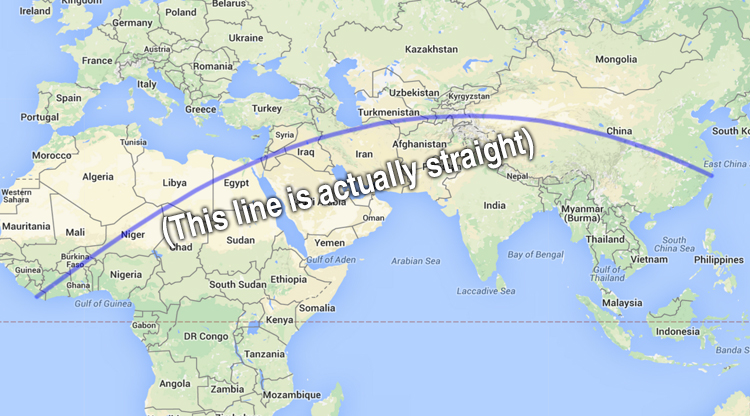China Chronicles is when we have a look back at 5,000 years of Chinese history - and pick out something pertinent...
Known simply as Madame Chiang Kai-shek to much of the world, Soong May-ling’s achievements and extraordinary presence on the world stage stretched far beyond her choice of suitor. Nonetheless, her role as first lady to the country’s beleaguered wartime leader was one she took to with unabashed pride. "My role is very simple," she would modestly explain: "I assist my husband."
May-ling was the youngest and last surviving of the three Soong sisters, part of a political dynasty that impacted modern Chinese history like few others. Their father, Charlie Soong, was a Methodist missionary and early supporter of Sun Yat-sen who earned a fortune producing Chinese Bibles and secretly printed pamphlets for Sun’s Revolutionary Alliance on the side. Their mother, Ni Kwei-tseng, was a descendent of Ming mathematician and Jesuit convert (and namesake of Shanghai's Xujauhui) Xu Guangqi. The three Soong brothers, meanwhile, were all high-ranking officials in the ROC government, most notably T.V. Soong, who served as governor of the central bank, finance minister, foreign minister and prime minister.
Ai-ling, the eldest of the Soong sisters, married H. H. Kung, direct descendent of Confucius and richest man in China, while middle sister Ching-ling married “father of the nation” Sun Yat-sen. The sisters' marriages and alleged motivations have been immortalized in the trope, "one loved money, one loved power, one loved China," referring to Ai-ling, May-ling and Ching-ling respectively.
However, attributing May-ling's motivations to a simple lust for power is a discredit to a woman who devoted so much of her life to serving her country and her husband with tireless devotion.
At international conferences she acted not only as her husband's interpreter but also as the closest of his advisors. Over the course of her long life that stretched into three centuries, Madame Chiang was described in the press as the "most powerful woman in the world," "the real brains and boss of the Chinese government," and "China's best ambassador." Ernest Hemingway crowned her the "empress" of China and Time Magazine compared her to Joan of Arc and Florence Nightingale. She was the last surviving active participant in the 1943 Cairo Conference, where the Allies met to decide the fate of post-war Asia, winning over even the incredulous Churchill who considered the sight of China sitting at the table alongside the Great Powers of Britain, America and the USSR a “joke.”
Whereas the Generalissimo's stern, military demeanor could inspire loyalty but rarely affection, Mme Chiang Kai-shek won China friends and supporters around the world. Her flawless and eloquent English went a long way in wooing audiences in the United States and pulling in support for China's war effort; however, it wasn't her only charm.
May-ling also had a talent for drama. “For five and a half years,” she told the House of Representatives, “China has borne Japan’s sadistic fury unaided and alone,” but now they and their “gallant allies” were “fighting for the same cause.” “They are killing our people,” she once said to Claire Chennault as the Battle of Shanghai flared. “What will you do now?” Chennault asked. May-ling threw her head back proudly and tearfully proclaimed, “We will fight.”
In February 1943, Soong became the first Chinese and only second woman ever to address both houses of Congress, rallying support for China’s ongoing and bitter resistance to Japanese aggression. May-ling endeared herself with her distinctive Georgia accent that she had picked up at Wesleyan College, where she was admitted aged just 15. Modern, educated, pro-American and Christian, to many audiences she represented the ideal of what they hoped China would become, and for that they were willing to overlook some irregularities in her regime’s finances.
After the Nationalists’ retreat to Taiwan in 1949, Madam Chiang continued lobbying for international support of her husband’s regime and their longed-for re-conquest of the Chinese mainland. After Chiang Kai-shek died in 1975, however, Soong retired to New York. As Chiang Ching-kuo lifted martial law in 1987 and the country democratized under Taiwanese-born president Li Teng-hui, with power shifting from the minority of transplanted mainlanders over to the majority of those born and bred on the island, it too became almost unrecognizable to the grand dame of Chinese politics.
Living out her last years peacefully in her Gracie Square apartment in Manhattan, when Madam Chiang passed away on 23 October 2003 the 105-year-old could count amongst her achievements not only being the First Lady of China and leading the country through war alongside her husband, but also inspiring a volume on Unlocking Soong May-ling’s Secrets to Longevity.
So how did she manage to live through three turbulent centuries of Chinese history? Her explanation was simple: an hour of prayer every morning, and reading the Bible and New York Times daily.





















0 User Comments